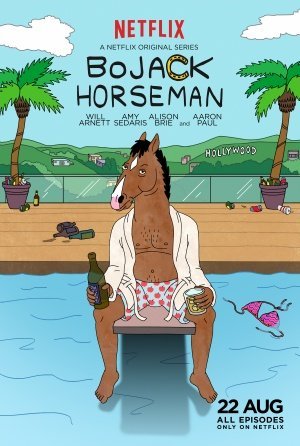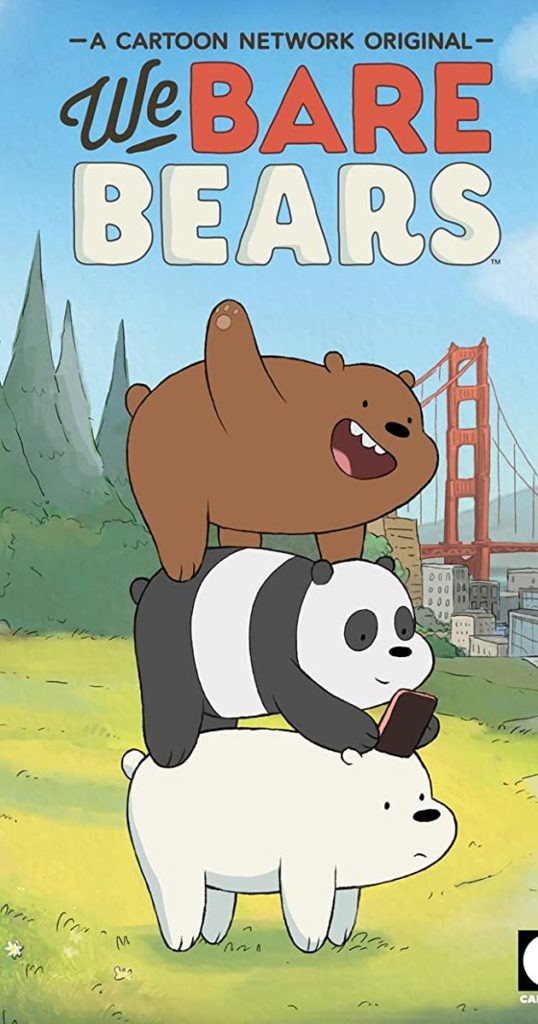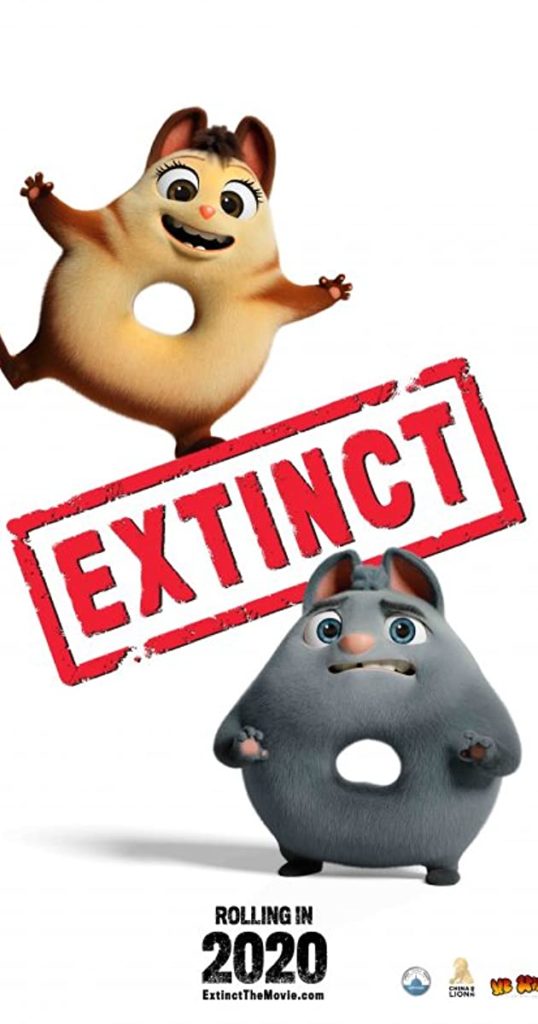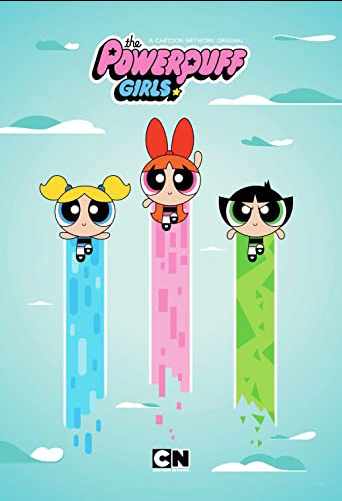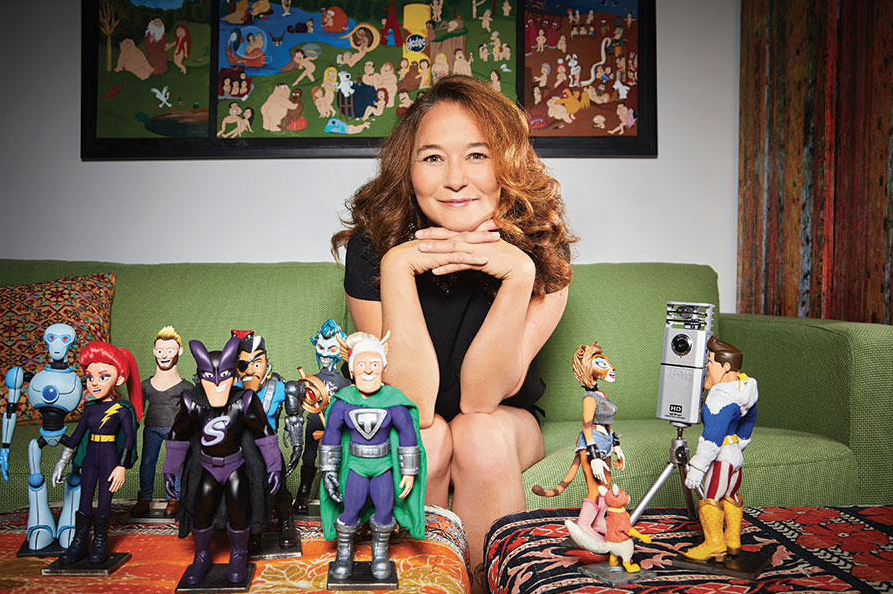
How did you find your way into casting and what drew you to animation?
I found my way when SHEILA MANNING, a very successful commercial casting director rang the office when I was an assistant to Betty Fanning, a lovely agent at WME, who entrusted me and gave me a lot of responsibility, and told me a James Bond Actress, Englebert Humperdink’s gorgeous daughter Louise Dorsey and another stunning actress weren’t the level that her client was looking for in their commercial campaign. It was the first time, I realized that I wouldn’t have a chance to book it and was confined to only the talent that was signed to WME. I was determined to expand my search horizon and that would naturally be casting. It was not immediate, but years later, after leaving a stack of resumes at the Casting Society of America, now known as CSA that I was found by the incredible KAREN VICE. She gave me my start long enduring career and I owe her the universe. She was a great mentor. It was Bob Harbin at 20th Century Fox that gave Karen and I a chance in animation with Seth MacFarlane and he stayed loyal to me for 17 years. Prior, I did work on an animated CBS Halloween special with Alice Cassidy. I loved being diverse in projects from 1⁄2 hr live action to 1⁄2 hr animated comedies and 1 hour dramas to 1 hour animated series. I get a lot of offers in animation so it’s been my course. I found there’s a lot of freedom in considering/auditioning talent. Especially now, when technology is so advanced, I can virtually record anyone almost anywhere so my search is really now the Universe!!
What’s one of your personality strengths that’s an asset in casting?
Tenacity. I don’t give up easy in searching, finding, convincing, booking talent. On several occasions, reps would pass on a role on behalf of their client and not bring it to them. If my intuition felt that the client wasn’t approached or maybe the project wasn’t supported by the rep/team then I am determined to find the client and win them over with the opportunity or project. Fortunately, it’s not common practice as most reps welcome these offers. I just need to try several times as another day may have a different response too.
Right now we’re navigating some brand new territory in the industry; any advice for actors on how to stay motivated and productive towards their craft in this uncertainty?
This international pandemic is very challenging, yet, I also see lots of opportunities. It’s forcing us to slow down, reorganize and get more creative. The confinement that we are experiencing has forced us to stop and think and retool ourselves. I see more people approaching me for animation opportunities, as we are able to continue while quarantined/locked down. Lists were distributed of talent’s recording equipment and we are sharing that information with other animation cds/voice directors.
I suggest working on your craft, enhancing/creating your audio/video demos, attempt to write/direct, work on social media, upload on TikTok, Twitter, Facebook. Make yourself appear on the first page of a Google search engine. Network via email contacting talent managers, agents, buyers, casting directors. Create your own projects as now they can be one minute to an anthology series and can live in so many places – podcasts, streaming, anywhere. It’s really the wild, wild west!!.
Nick Heath is a rugby announcer who posted on Twitter, his rugby style commentating of daily life in London. Not only did he bring a wonderful diversion to the onslaught of this tragic pandemic news but know I hunted him down (and not the only one) and am presenting him opportunities to audition for several projects. This really does happen!!.
What’s your favorite and least favorite parts of your job?
This sounds typical and redundant, but truly my favorite part of this job is helping talent get a gig. I strongly believe that we; talent, managers, agents, assistants, casting, directors, producers are all on the same trajectory to get the talent the gig. Casting is like the human resources in this medium. Matching a role to the right artists. I love scavenger hunts and I feel like I’m entering a new one on every episodic and film project. Always looking for those gems. I also liken it to Macgyver-ing it when you can present choices that aren’t obvious and considered out-of-the-box.
Least favorite is working with anyone who is abusive, untrustworthy and empowered. I have made a commitment to myself that I will never remain in any situation like that again. It takes a toll on one’s health and can ruin your reputation.
More incredulous, that in this me too era, it’s still a challenge to bring attention to ongoing atrocities. Unless you are friendly with Ronan Farrow, the threat of being stigmatized, ostracized, earned compensation withheld, litigation threats until you are financially bled dry and/or forced to sign a confidentiality agreement, still exists.
I think it’s important for actors to remember everything creative is always a growing and ever changing journey… What’s something you want to try or accomplish in the future?
My goal, and I’ve been trying every day through my limited social media, is to have direct access to all talent and mutually have access to me. I want everyone to have the opportunity to submit an audition for the projects I work on. I believe if talent knows they have a direct pipeline, are informed, they will be honest and comfortable to audition for what they truly feel they are right for.
With this new found free time a lot of actors are refreshing their voiceover materials and casting profiles; any tips, pointers, advice or preferences from the casting perspective to makes your job easier?
Ohhhhh… this is where I rant…be forewarned!! I’ve stated (actually lectured like a broken record) this recently at the CSA Artios SAG-AFTRA panel in Los Angeles, but I really feel talent (and their reps) needs to READ ALL THE SPECS (and what I neglected to drive home) is FOLLOW THE DIRECTIONS IN THE SPECS for the projects they are submitting for.
All the Casting Director’s have different requests and it helps us when you follow them. I am especially OCD when it comes to self-recorded auditions: case sensitive, naming/labeling the audio files and NDA’s, simple slates at the beginning of an audition – not a whole diatribe nor trying to entertain at the beginning of an audition, sending to the correct listed email submission address and not duplicating it to every email one finds for me,
At the CSA Artios SAG-AFTRA panel, I shared my email address and stated if you email me I will supply you with a project to audition for. Facts: 90% who contacted me didn’t follow the specs when submitting.. I spent 3-5 days resending emails with the words READ THE SPECS and RESUBMIT. Did I regret sharing my email address? Yes, honestly. Did I stop? No. I am hoping everyone will learn to READ THE SPECS and FOLLOW DIRECTION. Another set of people didn’t reach out in a timely manner. My take-away was that they weren’t timely nor ambitious in their career choice.
I know first-hand from auditioning for you, you give great and very thorough notes. Any advice for an actor who’s taping for you for the first time?
READ THE SPECS and FOLLOW ALL OF THE DIRECTIONS. New Tips: Address any notes regarding who the character is, who are they conversing with, are they talking to one or several people, where are they, as it will affect how you project your voice. Listen back to what you just recorded before sending to us. Did you address all the characteristics of the role i.e. nervous? tall? Speaking to an elder? Speaking to a child? Was there any activity in the stage direction that would affect the delivery of the line. If you are voicing a child, research and listen to an authentic child especially, if the project is natural, conversational tone. Also make yourself small as it may help in making yourself naturally younger. Most kids look up to an adult to speak with them. Research the writer/producer/director/casting director and see what projects they have done and listen, (don’t watch,) listen to them and you’ll see what styles (voice, delivery, temp) they gravitate toward. Also take into consideration, when auditioning that typically comedy is funnier when it’s just a little faster on an audition submission. When there are gaps in the audio, you lose you listener as they don’t have a visual to carry it through. Another thing that I always recommend is NO READERS unless requested. There have been many auditions where the reader upstaged or didn’t help the talent get the gig. We like to keep anyone listening focused on the talent and no one else.
Lastly I recommend if you choose to improv, submit on the 2nd take on the same file. If we know, Producer/Writers don’t have wiggle room for improv in their script, they will not respond to an improvised version and we can cut it off. If we know they like improv we’ll keep it in
Going off of that, what are some of the common and easily avoidable mistakes you see actors make?
NOT READING THE SPECS AND/OR NOT FOLLOWING THE DIRECTIONS. Not submitting for multiple roles. Why lose an opportunity?
Actors often want to feel “productive”, and that equals expensive mailers or other projects that don’t truly move the needle. What are more positive ways actors can stay on casting and especially your radar?
I personally would love a searchable Resume/CV where your various skills can be found in one document with a small picture insert. Whether you are fluent/can translate languages, accents, Cricket sounds, Underwater bubble chatter, marble mouthed, performance-soundalikes, speed talk, etc . Google Enn Reitel’s impersonations.
Last question; What’s one thing you wish you could go back and tell your younger self?
Don’t remain in toxic environments/jobs/situations. Honestly, once you exit, the world opens up and lots of opportunities show themselves.
My other self-chat would be to remind myself never let fear or doubt invade your life. Follow your instinct. Fear stalls, stops or misguides you. When I was fearless I could accomplish everything.
Lastly, you should look for the positive when there is something negative. Glass half full. if you can see that, your goals can be achieved and you won’t be deterred. I really belive some obstacles/diversions are forced to make us see a different path and/or get back on the right path.
Linda Lamontagne interview for WHAT’S MY FRAME? April ’20
by: Laura Linda Bradley

